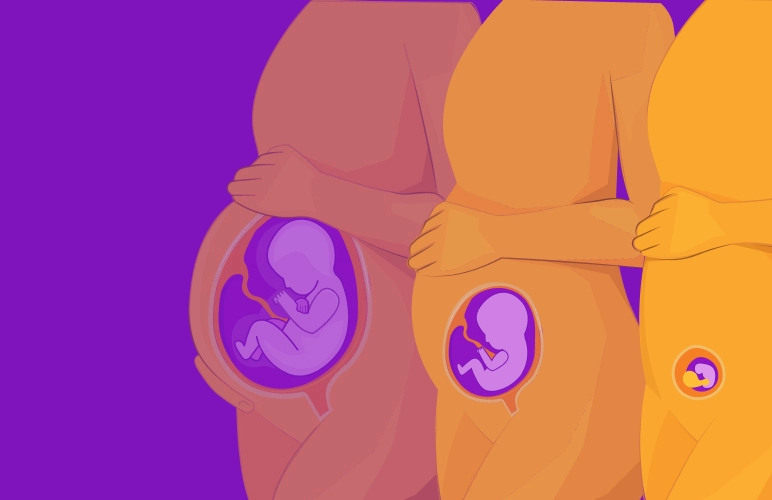How does a woman's body change during pregnancy?
A woman's body changes a lot during pregnancy. These changes begin very early, even in the first weeks of pregnancy, and prepare the mother's body to cope with the needs of pregnancy, birth and the postnatal period. These are normal changes, but they can be uncomfortable at times. Changes will occur in almost every organ system.
Most of the changes are determined by the hormones produced in the placenta (a new organ that appears only during pregnancy). In other words, hormones are natural chemicals produced by one part of the body that tell different parts of the body what to do. The most important hormones in pregnancy are called estrogen and progesterone. There are also hormones that do not come from the placenta, but are of great importance. One is called oxytocin - sometimes called the love hormone and prolactin which is also called the milk hormone.
As mentioned, all changes are aimed at making pregnancy and birth safe. To grow a child, the pregnant woman needs additional food. The gut slows down its movements and it can absorb more nutrients; this is good for pregnancy, but it can cause constipation.
The baby needs oxygen, so the lungs breathe deeper, but not faster. This is good for the baby, it will feel shorter breathing. Oxygen has to be carried in the blood from the lungs to the placenta, so the heart has to beat more often to carry the necessary amount of blood and oxygen, thus it can cause palpitations.
The growth and intrauterine development of the baby is hard work and hard work produces a lot of thermal energy. To get rid of this heat, the body must transport it to the skin, and therefore more blood will reach the skin. It is possible to have more frequent sensations of heat, and more excessive sweating.
When the baby is born and after the birth (placenta) there is always some bleeding. To prepare the body for this, it produces extra blood. This extra blood should be "stored" somewhere until needed. It can only be stored in the blood vessels and therefore the blood vessels have to dilate, so you may have dilated blood vessels on the legs, called varicose veins or dilated blood vessels around the anus, called hemorrhoids.
In the case of a natural birth, the baby will have to come out through the vagina. For this to happen, the tissues around the vagina should expand. The body will prepare for this by making the ligaments that join the bones and the skin more flexible, softer. This is beneficial for childbirth, but the loose ligaments can cause back pain and the skin can have stretch marks.
Soon after birth, the baby should be breastfed. The body prepares for this by growing the breasts during pregnancy and preparing them to produce milk. It's good for the baby, but it can cause breast tenderness, larger breasts, the need for a new bra, and nipple discharge.
Other changes during pregnancy do not have a very clear purpose, for example, the skin can darken, vaginal secretions are more abundant, urination is more frequent, leg cramps and morning sickness (feeling like throwing up or nausea, and throwing up or vomiting). All these changes are normal, as long as the pregnant woman does not feel extremely uncomfortable and cannot take care of basic daily activities because of them.
Most changes completely return to their previous state after pregnancy.











